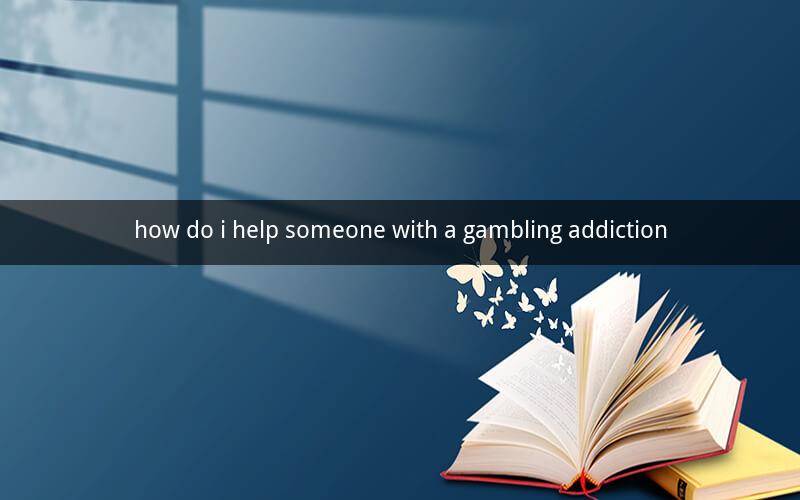
Table of Contents
1. Understanding Gambling Addiction
2. Recognizing the Signs of a Gambling Problem
3. Communicating with the Gambler
4. Encouraging Professional Help
5. Supporting the Gambler in Their Recovery Journey
6. Building a Support Network
7. Coping with the Emotional Impact
8. Setting Boundaries and Limits
9. Encouraging Financial Responsibility
10. Maintaining Long-Term Support
1. Understanding Gambling Addiction
Gambling addiction, also known as problem gambling, is a serious condition characterized by an inability to control the urge to gamble, despite negative consequences. It is important to understand that gambling addiction is a complex issue with psychological, social, and sometimes physical components. To help someone with a gambling addiction, it is crucial to first have a clear understanding of the problem.
1. Recognizing the Signs of a Gambling Problem
Identifying the signs of a gambling problem is the first step in helping someone struggling with addiction. Common signs include:
- Preoccupation with gambling
- Lying about gambling activities
- Borrowing money to fund gambling
- Missing work or school to gamble
- Feeling restless or irritable when not gambling
- Continuing to gamble despite negative consequences
1. Communicating with the Gambler
Communicating effectively with the gambler is essential. It is important to approach the conversation with empathy, understanding, and non-judgment. Here are some tips for effective communication:
- Choose a quiet, private setting
- Express your concerns without placing blame
- Listen actively and without interrupting
- Avoid arguing or confrontational language
- Offer support and reassurance
1. Encouraging Professional Help
Professional help is often necessary for treating gambling addiction. Encourage the gambler to seek help from a therapist, counselor, or support group. Some options include:
- Individual therapy
- Group therapy
- Cognitive-behavioral therapy (CBT)
- Support groups like Gamblers Anonymous
1. Supporting the Gambler in Their Recovery Journey
Supporting the gambler throughout their recovery journey is crucial. Here are some ways to offer support:
- Encourage the gambler to attend therapy sessions and support group meetings
- Offer to accompany them to appointments or meetings
- Help them create a budget and manage their finances
- Encourage them to develop healthy coping mechanisms
- Celebrate their progress and milestones
1. Building a Support Network
A strong support network can provide ongoing support and encouragement. Here are some ways to build a support network:
- Encourage the gambler to connect with friends and family who are supportive
- Help them find a therapist or counselor who specializes in gambling addiction
- Introduce them to support groups and community resources
- Offer to join them in attending support group meetings
1. Coping with the Emotional Impact
Gambling addiction can have a significant emotional impact on both the gambler and their loved ones. It is important to seek support for your own emotional well-being. Consider:
- Attending therapy or support groups for loved ones of gamblers
- Developing healthy coping mechanisms
- Setting boundaries to protect yourself from emotional distress
1. Setting Boundaries and Limits
Setting boundaries and limits is crucial for protecting yourself and ensuring the gambler's recovery. Here are some tips:
- Establish clear boundaries regarding financial support
- Communicate your concerns and expectations
- Encourage the gambler to seek professional help
- Offer support but avoid enabling their addiction
1. Encouraging Financial Responsibility
Encouraging financial responsibility is essential for the gambler's recovery. Here are some ways to help:
- Help them create a budget and manage their finances
- Encourage them to seek financial counseling
- Offer to assist them in paying off debts
- Support them in finding ways to increase their income
1. Maintaining Long-Term Support
Maintaining long-term support is crucial for the gambler's recovery. Here are some ways to provide ongoing support:
- Continue to offer emotional support and encouragement
- Stay connected with the gambler through regular check-ins
- Encourage them to maintain their recovery plan
- Celebrate their progress and milestones
Questions and Answers
1. Question: How can I tell if someone has a gambling addiction?
Answer: Look for signs such as preoccupation with gambling, lying about gambling activities, borrowing money to fund gambling, and missing work or school to gamble.
2. Question: What is the best way to communicate with someone who has a gambling addiction?
Answer: Approach the conversation with empathy, understanding, and non-judgment. Listen actively and without interrupting, and avoid arguing or confrontational language.
3. Question: Should I confront the gambler about their addiction?
Answer: Confrontation may not be the most effective approach. Instead, communicate your concerns and offer support in a non-judgmental manner.
4. Question: Can therapy help someone with a gambling addiction?
Answer: Yes, therapy, particularly cognitive-behavioral therapy (CBT), can be effective in treating gambling addiction.
5. Question: How can I help someone who has accumulated debt due to gambling?
Answer: Help them create a budget, seek financial counseling, and offer to assist them in paying off debts.
6. Question: Is it possible for someone to recover from a gambling addiction?
Answer: Yes, with professional help, support, and a strong commitment to recovery, it is possible for someone to overcome a gambling addiction.
7. Question: How can I support a loved one who is in recovery from a gambling addiction?
Answer: Offer emotional support, encourage them to attend therapy sessions and support group meetings, and celebrate their progress and milestones.
8. Question: Can family therapy help in dealing with a gambling addiction?
Answer: Yes, family therapy can be beneficial in addressing the emotional impact of gambling addiction on both the gambler and their loved ones.
9. Question: What are some healthy coping mechanisms for someone struggling with a gambling addiction?
Answer: Healthy coping mechanisms include exercise, meditation, hobbies, and spending time with supportive friends and family.
10. Question: How can I maintain long-term support for someone in recovery from a gambling addiction?
Answer: Continue to offer emotional support, stay connected through regular check-ins, and encourage them to maintain their recovery plan.